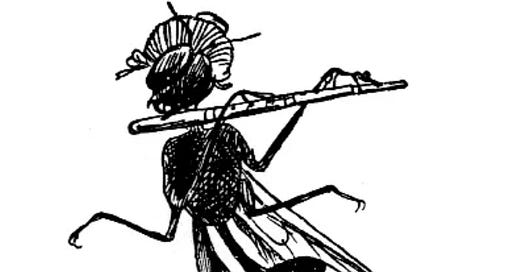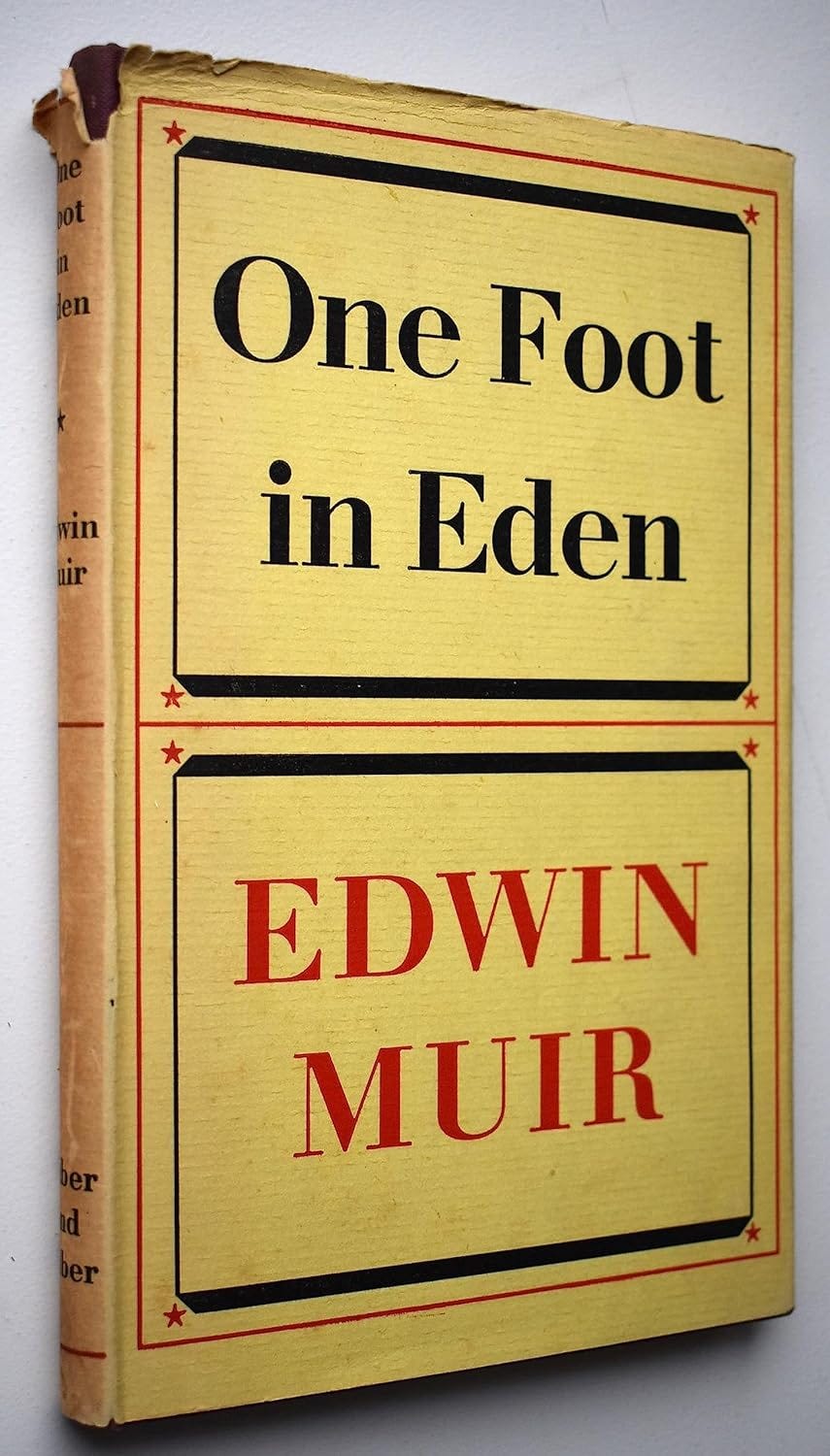In thy weak hive a wandering wasp hath crept,
And suck’d the honey which thy chaste bee kept.
William Shakespeare
What’s your favourite poem about a wasp? I realise it’s an odd question, because there aren’t many — but I think I recently read the best poem ever written about a wasp in English. Poetically, the wasp spent centuries as a villain in a world of allegory; the parasitic opposite of the bee, as in the couplet above from Shakespeare’s The Rape of Lucrece (1594). Even Thomas Philpot’s promisingly titled “On himselfe being stung by a Wasp” (1646) — which describes the “flames” left in his blood by a “busie testie Wasp” — ends up being a moral rhyme about “the sting of conscience”. So it was quite startling to read a poem, by the Scottish poet John Davidson (1857—1909), which attempted to release the wasp from its fate by asking us — as J.M. Coetzee’s Elizabeth Costello says of Ted Hughes’ animal poems — “to imagine our way into that way of moving”.
Before I discuss Davidson’s wasp, though, here are a couple of twentieth-century comparisons. “Wasp” by Glyn Maxwell, from Tale of the Mayor’s Son (1990), was a poem I liked as a teenager, because it made something memorable from the business of sitting in pub gardens. A wasp arrives at a table of male friends (“mates in sweat”), and they all compete to swat it. In the background, a bee hovers at a hanging basket, providing a “wiser” contrast to the wasp passing “from salad to salad”. The poem ends:
We got it. Who got it? I got it,
and dissuaded the boys from keeping it
frizzing in a jar forever and ever. I crushed it.
Well, I thought, as the bee moved off to tell—
but heavily, bored with its maddening cousins—well:
don’t fuck with us, little guys. We’re mad as hell.
Three decades on, I now read this as a satire on the casual laddishness that would come to dominate British culture (including its poetry) in the Nineties, and suspect that Maxwell is playing on “wasp” as a shorthand for “White Anglo-Saxon Protestant” — the connotations of which shadow the macho Americanisms of the final line. But this means that it’s not so much a poem about the waspishness of the wasp as about the politics of a violent response to an exaggerated threat, with the reaction of the bee in the final line completing the allegorical typecasting of the wasp as a kind of thief.
The next poem that came to mind was Edwin Muir’s “The Late Wasp” (1956), which, as a sonnet, is short enough to quote in full. There’s a lovely, wasp-like swerve to Muir’s free verse as it steers its single sentence across varying line-lengths and rhyme-pairs, with the “change” of the volta at line 8 announced by the modulation from mostly disyllabic rhymes (“summer / mummer”) to mostly monosyllabic (“cold / hold”).
Keep reading with a 7-day free trial
Subscribe to Some Flowers Soon to keep reading this post and get 7 days of free access to the full post archives.





